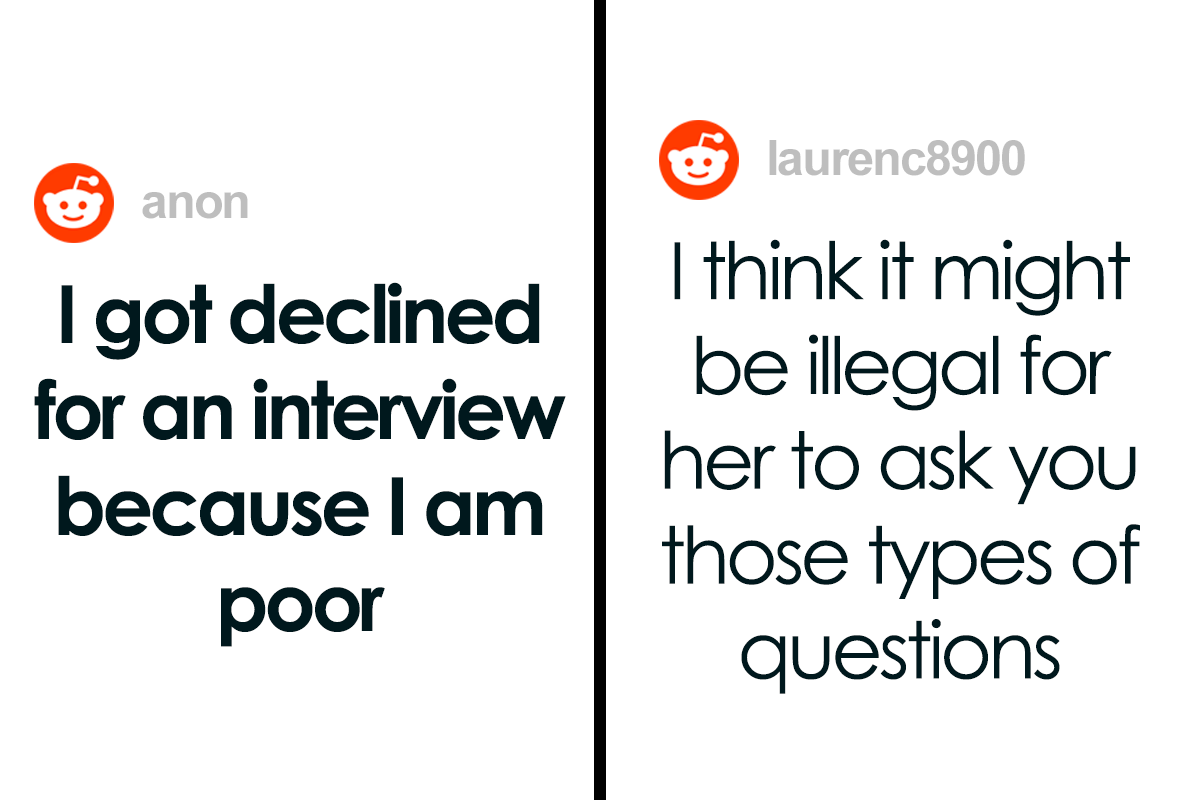
Qualified Woman Gets Rejected From Dream Job Interview Due To Her Lack Of Financial Resources, Turns To The Internet For Support
Sadly, the reality of job hunting is that often qualifications and merit alone are not enough to land an offer. Such was the case for this Redditor as well.
The woman knew that she was suitable for the position but the area where the company is located has, in the words of the interviewer, “notoriously high rent” and apparently the business is looking for someone they can underpay because a candidate that lacks extra funds to live off of doesn’t interest them.
This woman was psyched to hear from a potential employer even though she sent her application two weeks late
Image credits: GeorgeRudy (not the actual photo)
However, she apparently has too little money to start earning a living
Image credits: LightFieldStudios (not the actual photo)
Image credits: anon
It’s easy to imagine that such interactions add more stress when you’re looking for employment
Searching for work can be a highly stressful period as it is. An overwhelming majority of Americans, 93%, have experienced anxiety about their job interviews, according to a 2020 survey of 2,018 people by background check company JDP.
Furthermore, keep in mind that’s just one step in the process ― there’s also submitting your resume and taking any tests a potential employer would ask you to. So at least the applicants usually don’t have to disclose the balance of their bank accounts.
To get a better understanding of this organization’s practices, we contacted certified resume strategist Greg Langstaff, who has worked as a recruiter and hiring manager for 10 years.
“It’s frustrating to see a company know that their salaries aren’t high enough to support a basic quality of living and not raise them,” Langstaff told Bored Panda. “I don’t know if that’s because they can’t afford to or don’t want to, and if it’s the former, I feel for them because they have no control over the rent prices in their area but if they’re keeping salaries low by choice… That’s just not cool.”
“I guess I’m glad they’re telling people in advance instead of letting them figure out they can’t afford their life a few months later, but overall, they’re probably missing out on some great candidates who don’t have the kind of support they’re asking for,” Langstaff, who also shares useful career advice on Instagram and TikTok, added.
Luckily, it’s more of a standalone case than the norm
Image credits: avebreakmedia (not the actual photo)
There are numerous routes the company could’ve taken in an attempt to mitigate the problem. “3 years ago, millions of jobs that we never dreamed could be done remotely shifted on a virtual work model and many of those companies experienced huge cost savings and bumps in employee satisfaction,” Greg Langstaff pointed out.
“So if you can offer remote work arrangements, do it! For those jobs that physically cannot be done remotely and are located in a high-rent area, offering flexible work hours for employees who need to live further away and commute could be a good solution, or if you can afford it, raise the salaries of your employees so they can live closer and focus on doing great work for you.”
However, if you find yourself in such a scenario and the interviewer isn’t willing to compromise, Langstaff thinks you could try to ask for some time to think about the offer.
“Then, I would advise making a personal budget calculating all the expenses you’d be facing if you took on this role and moved to this area, plus all your regular monthly expenses and any money you want to be putting away for savings,” he explained. “Once you have this number, you know your minimum acceptable compensation. You can increase that number by whatever you think you deserve and counteroffer with that, but if they can’t at least hit your minimum, you’ll need to walk away.”
However, high competition in the workforce means recruiters can get away with more questionable practices
Image credits: stokkete(not the actual photo)
Langstaff believes a job should never cost you money, even if it’s just for the first year. “Job seekers should be weary of any promises of possible future raises in lieu of being paid appropriately today because they often don’t pan out,” he highlighted. “Whether an employer is being greedy and/or immoral by offering a salary that they know is too low, or if they’re being forced into offering a lower salary because they’re not financially stable enough to offer more, neither is good for you as an employee. If something like this came up, I’d probably just walk away.”
Considering the current climate in the workforce, it’s hard to determine if a company can get away with such a stunt.
On one hand, Monster, one of the early online job boards, reported that 96% of workers are hunting for a new job. But on the other, the respondents of the December survey said that they are seeking more compensation. Nearly half, or 40%, of job seekers said they need a higher income due to inflation and rising expenses.
Still, Vicki Salemi, Monster’s career expert, told CNBC that even compared to the Great Resignation, the figure is “phenomenally high.” So maybe the business does have a chance if it keeps playing the numbers.
As her story went viral, the original poster (OP) provided more info on the whole ordeal
People had a lot to say about it
How are we casually discussing a fact that some of us are too poor to work and have a career. It's messed up world!
It really speaks to what our world is coming to. Can't afford to get a job. Can't afford not to have one. What kind of logic is that?
Load More Replies...After working twelve years in the humanitarian sector I've finally accepted I can never make an honest living out of it. It's either be an overwoked employee with a poverty wage or an overstressed and even more overworked manager and make barely more. Only rich people can work in the fight against poverty nowadays. I'm done.
Thank you so much for all the hard work you put in for the people who needed it most. I'm so sorry and disgusted that society doesn't pay you what you're worth.
Load More Replies...If a company can't pay a living wage in the area it expects its employees to operate, then it doesn't deserve to exist. Period. The F***ing entitlement of ppl thinking that they deserve our labor when they aren't willing to appropriately compensate us for it...screw that.
I don't think people are even able to conceptualize NGO or non profit based work when they read articles like this. To me this piece read very much like she was working in a fulfilling sector, but one which didn't necessarily print money. Maybe some type of service for low income citizens? Likely funded via grants and donations. Are you saying these types of organizations should not exist?
Load More Replies...How are we casually discussing a fact that some of us are too poor to work and have a career. It's messed up world!
It really speaks to what our world is coming to. Can't afford to get a job. Can't afford not to have one. What kind of logic is that?
Load More Replies...After working twelve years in the humanitarian sector I've finally accepted I can never make an honest living out of it. It's either be an overwoked employee with a poverty wage or an overstressed and even more overworked manager and make barely more. Only rich people can work in the fight against poverty nowadays. I'm done.
Thank you so much for all the hard work you put in for the people who needed it most. I'm so sorry and disgusted that society doesn't pay you what you're worth.
Load More Replies...If a company can't pay a living wage in the area it expects its employees to operate, then it doesn't deserve to exist. Period. The F***ing entitlement of ppl thinking that they deserve our labor when they aren't willing to appropriately compensate us for it...screw that.
I don't think people are even able to conceptualize NGO or non profit based work when they read articles like this. To me this piece read very much like she was working in a fulfilling sector, but one which didn't necessarily print money. Maybe some type of service for low income citizens? Likely funded via grants and donations. Are you saying these types of organizations should not exist?
Load More Replies...
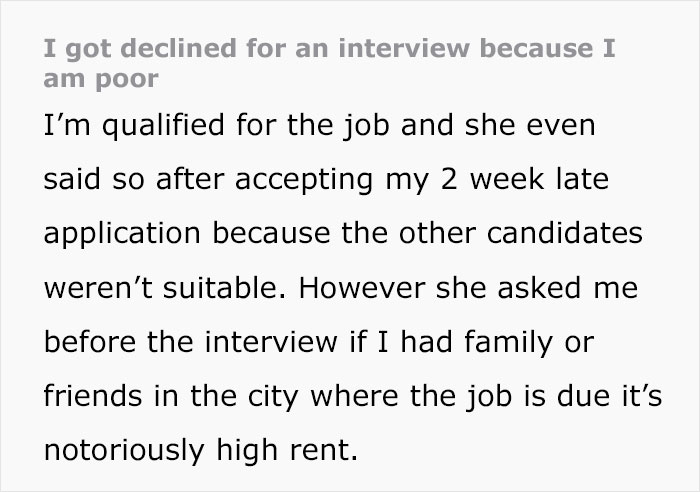
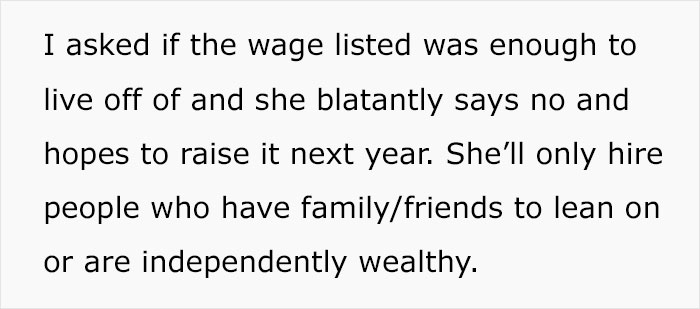

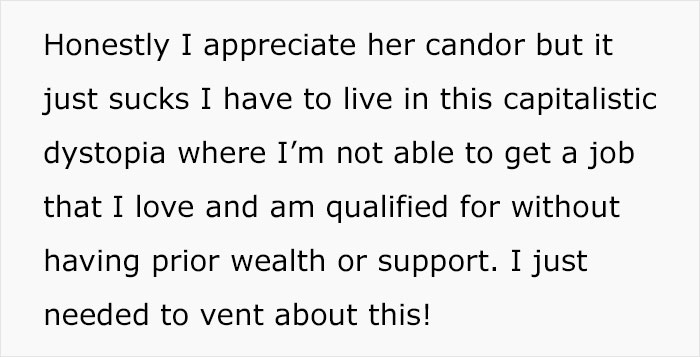


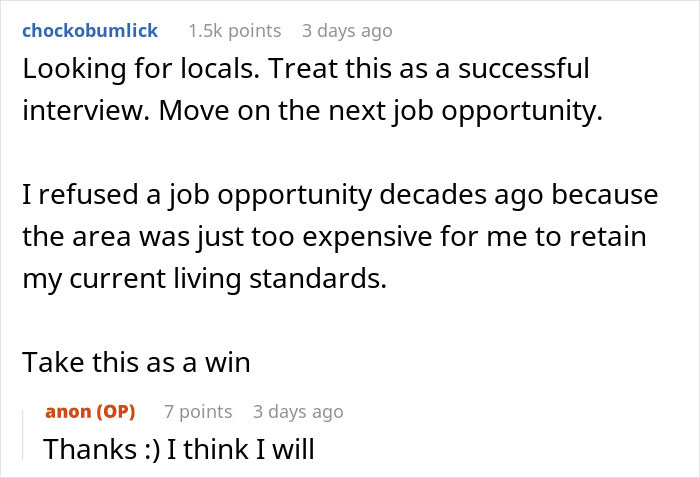
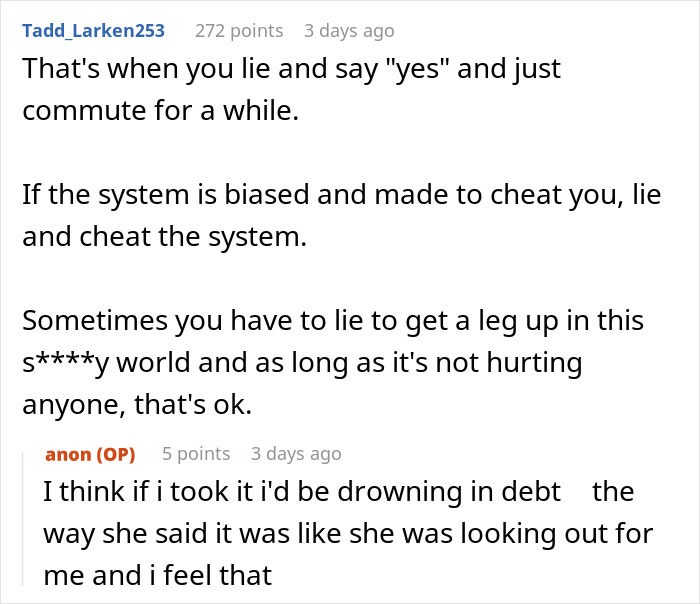
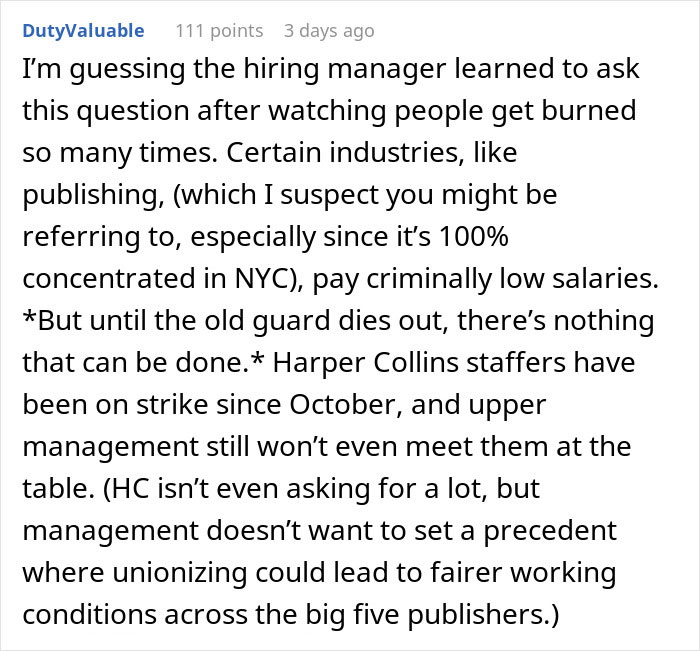
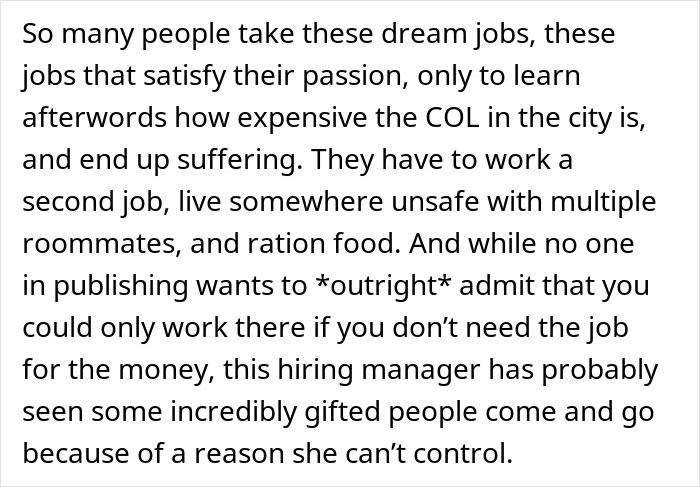
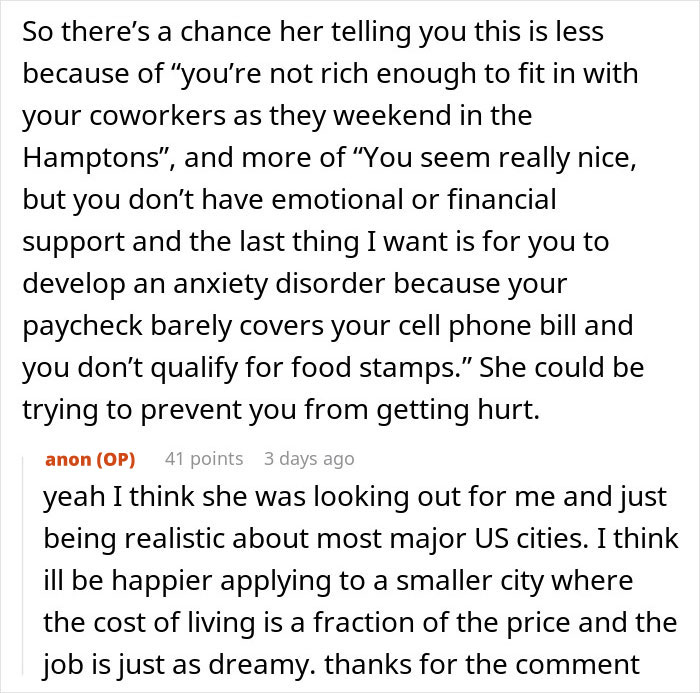
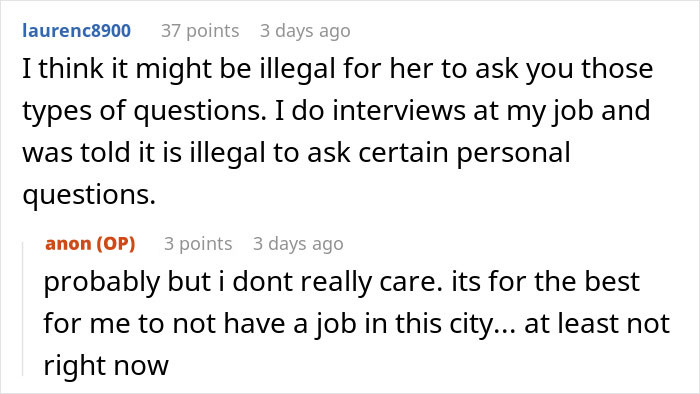
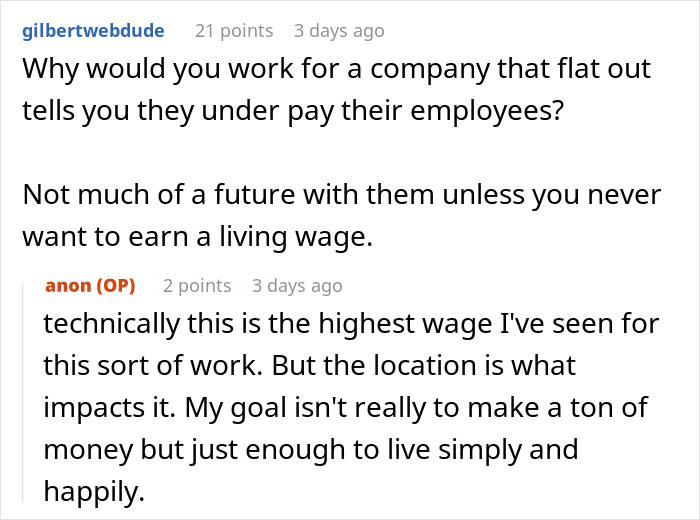

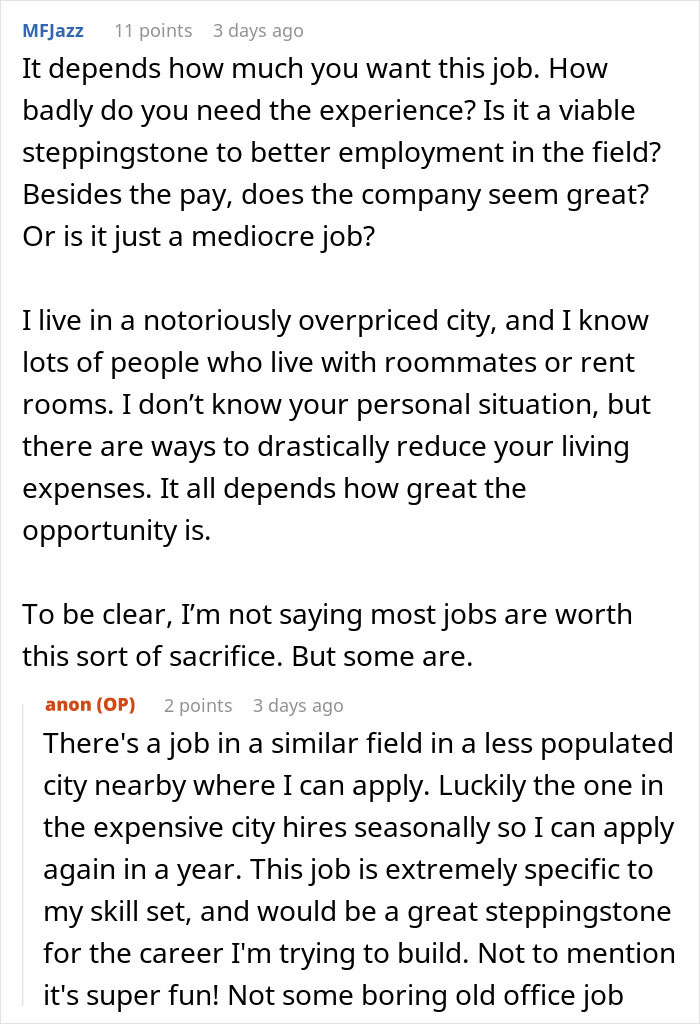
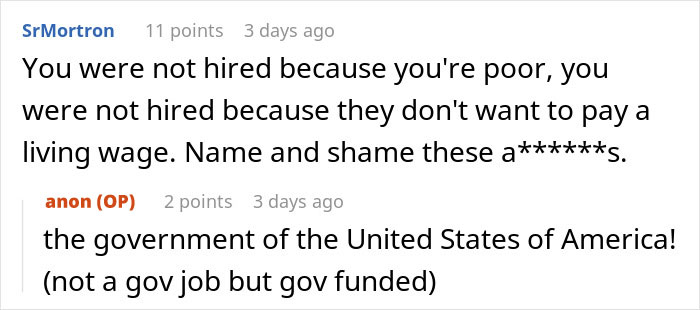
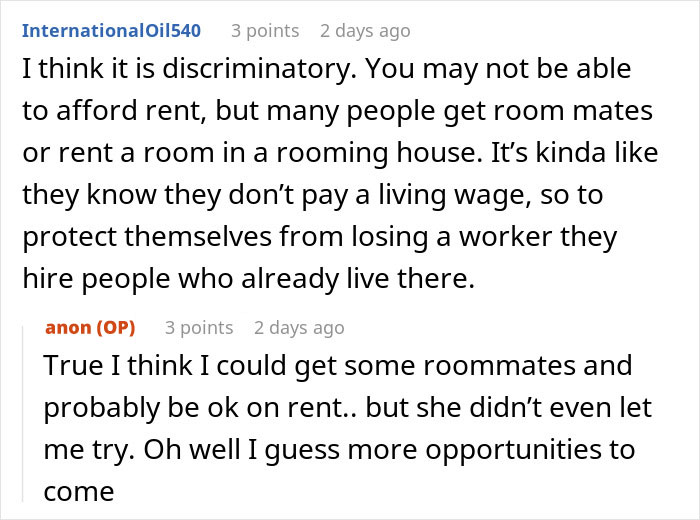

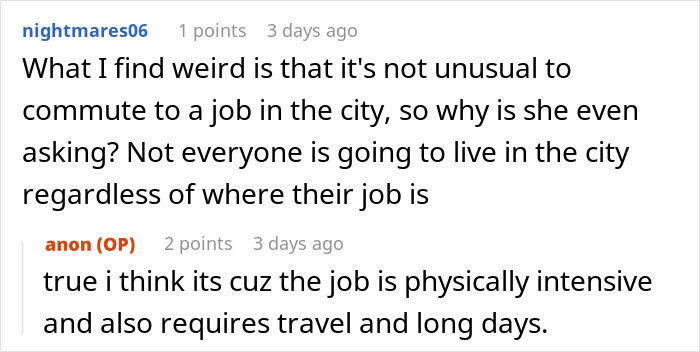
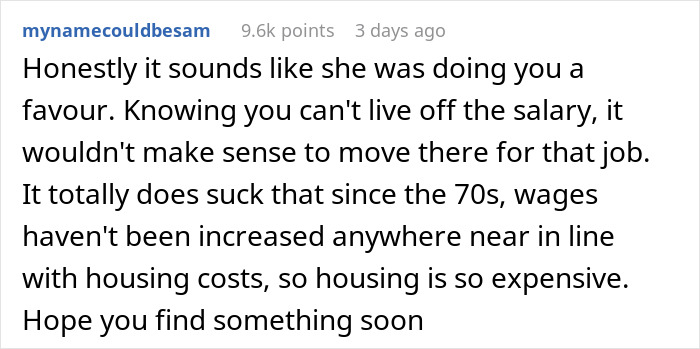



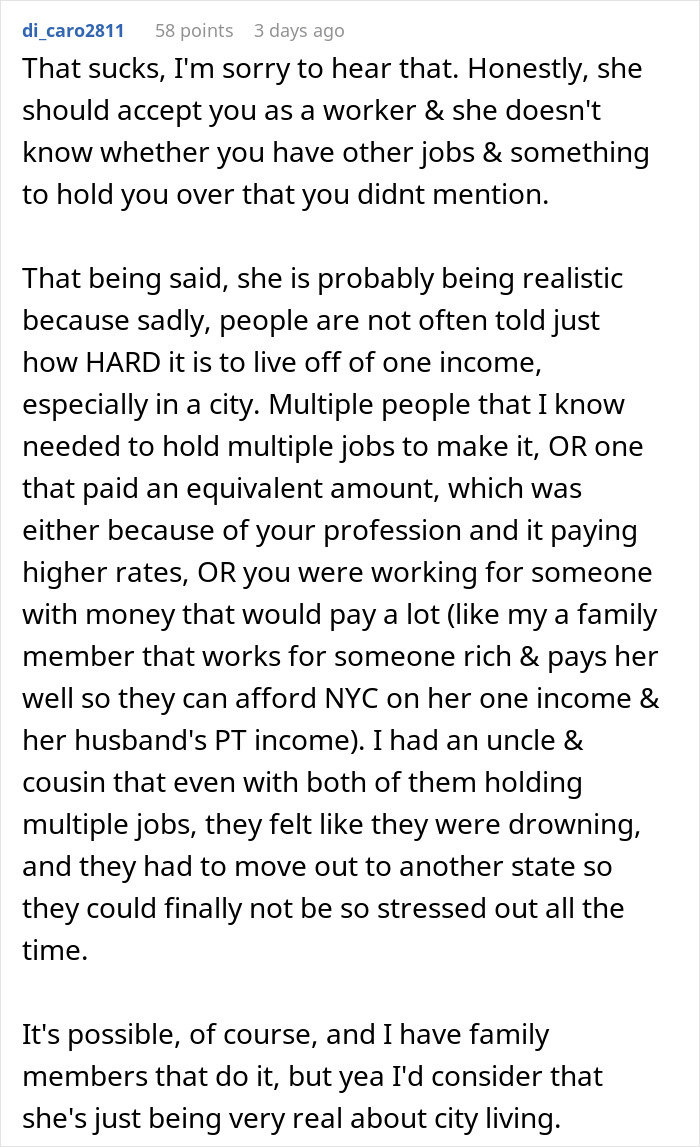



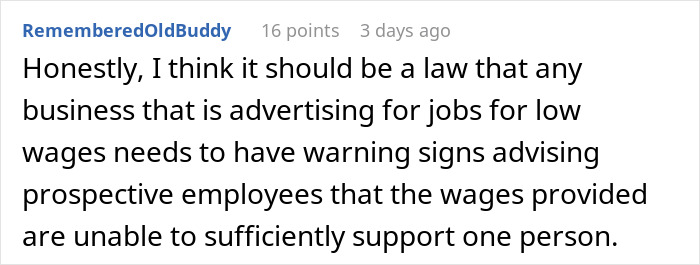
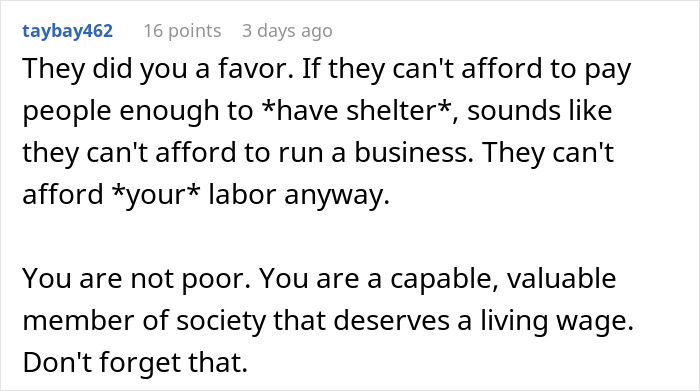












42
50